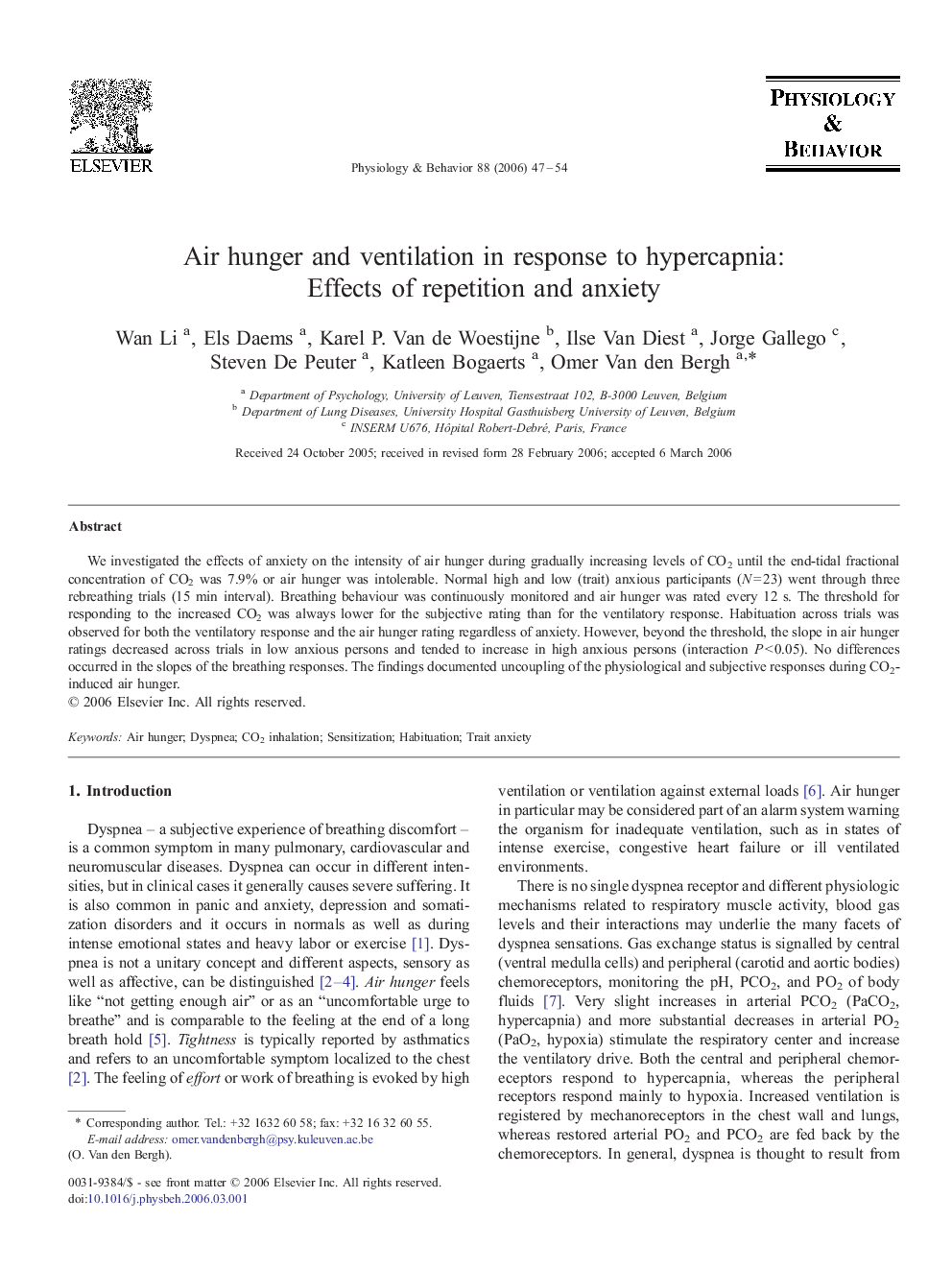| Article ID | Journal | Published Year | Pages | File Type |
|---|---|---|---|---|
| 2846390 | Physiology & Behavior | 2006 | 8 Pages |
We investigated the effects of anxiety on the intensity of air hunger during gradually increasing levels of CO2 until the end-tidal fractional concentration of CO2 was 7.9% or air hunger was intolerable. Normal high and low (trait) anxious participants (N = 23) went through three rebreathing trials (15 min interval). Breathing behaviour was continuously monitored and air hunger was rated every 12 s. The threshold for responding to the increased CO2 was always lower for the subjective rating than for the ventilatory response. Habituation across trials was observed for both the ventilatory response and the air hunger rating regardless of anxiety. However, beyond the threshold, the slope in air hunger ratings decreased across trials in low anxious persons and tended to increase in high anxious persons (interaction P < 0.05). No differences occurred in the slopes of the breathing responses. The findings documented uncoupling of the physiological and subjective responses during CO2-induced air hunger.
